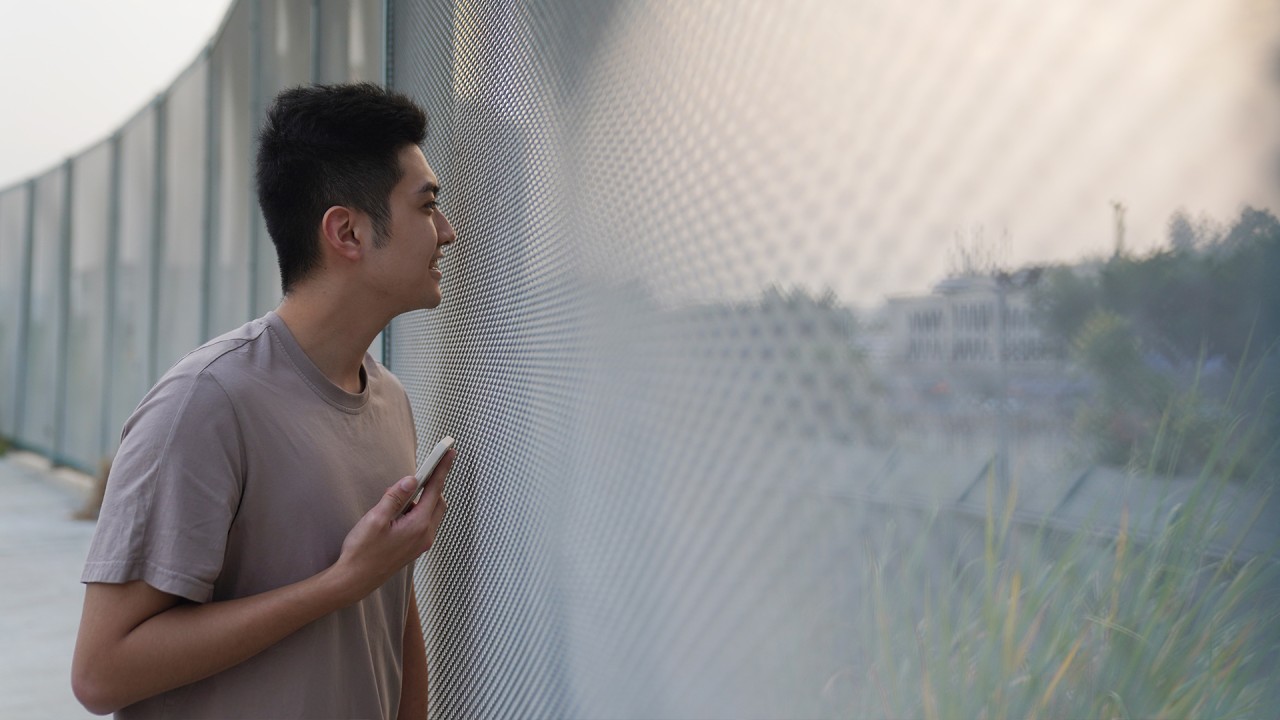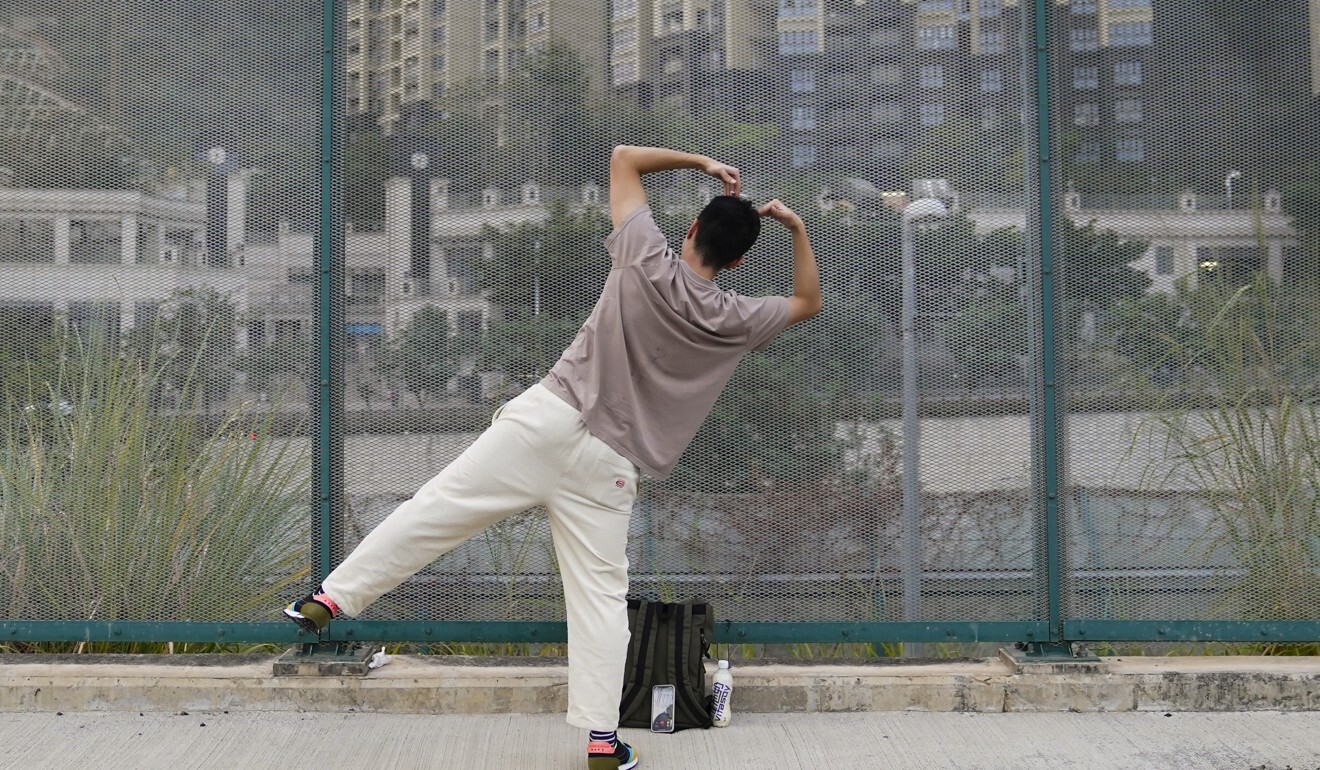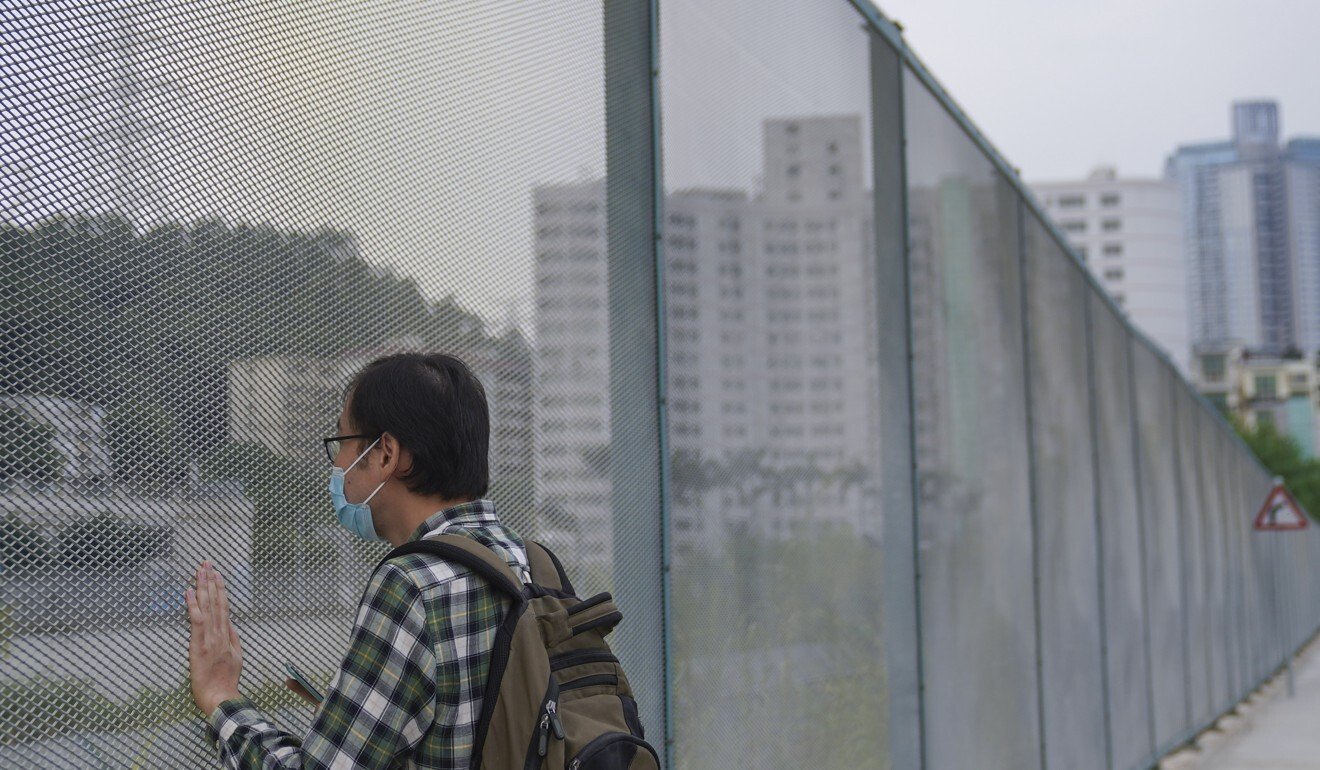
So near, yet so far away: Hong Kong’s cross-border couples, families struggle with long separation from loved ones
- Some quit jobs to reunite with families, others consider divorce after almost two years apart
- As border restrictions drag on, those hit hardest hope authorities will consider their plight
Clinging to the wire fence at the border in Heung Yuen Wai and staring across the Shenzhen River at his girlfriend 100 metres away, Don Ho shouts: “It’s been a long time. I miss you. I love you!”
She replies, but cannot be heard clearly. He beams anyway and gestures for a hug.
It was the first time in about half a year that the 24-year-old Hongkonger had seen and spoken to his mainland Chinese girlfriend of the same age in person.
Coronavirus increases mental health risks for migrant workers
The spot in Heung Yuen Wai has become increasingly popular among couples separated by cross-border travel restrictions since the Covid-19 pandemic began.
Ho, who works at a consultancy in Hong Kong, spent 90 minutes travelling by MTR and bus on Wednesday afternoon to reach the area near the Liantang-Heung Yuen Wai border control point in the New Territories.
All was quiet from the Hong Kong side, close to the Heung Yuen Wai Sewage Treatment Plant.
The Shenzhen side was livelier, with traffic on the road in front of a row of residential blocks. Some passers-by, drawn by the sight of the young woman shouting across the river, followed her gaze to Ho on the other side.

02:22
Couple split by Covid-19 restrictions keep up relationship by meeting at Hong Kong-Shenzhen border
They have been in a relationship for a year after meeting online. The last time they met in person, he spent two weeks in quarantine after crossing the border.
He stumbled on the Heung Yuen Wai meeting spot online, shared by others separated like them.
“Seeing her like this gives me mixed feelings. It feels closer, but still distant,” he says.
The pandemic has proved agonising not only for courting couples like Ho and his girlfriend, but also those in cross-border marriages, and separated families affected by travel restrictions on both sides.
There were 19,557 cross-border marriages in 2019 – 12,563 between Hong Kong men and mainland women, and 6,994 between Hong Kong women and mainland men. The number of such marriages plunged to 3,266 last year because of the pandemic.

There are also many Hong Kong residents with families on the mainland, and mainlanders working in Hong Kong who have spouses, children or elderly parents on the other side of the border.
After almost two years of travel restrictions, they hope the authorities will reopen the border soon and let them reunite with their loved ones.
‘I want to hold my wife and daughter again’
Samuel Lin, 32, took more than an hour on Wednesday to get from Mong Kok, where he lives, to the same spot where Ho went to see his girlfriend.
The Shenzhen native came to Hong Kong alone in 2017 to pursue a master’s degree and now works as a researcher in the city, while his wife, daughter and the couple’s parents live across the border.
Before the pandemic, he used to travel to see his family two to three times a week. The hardest part of the separation, he says, is missing out on watching his daughter grow up. She just turned two.
“The last time I held my daughter in my arms, she was only about six months old,” he says. “I miss them so much.”

It is hard for him to take long leave from work to travel to Shenzhen and meet the mainland quarantine requirements. Some of his female colleagues with young children on the mainland resigned and returned to be with their families.
Lin was at the border meeting place to check it out and spent about half an hour taking photos and videos that he sent to his wife.
He hopes to go there again soon to see his wife, daughter, his parents and in-laws on the other side.
“It has been too long. I want to hold my wife and daughter again,” he says.

‘Families at risk of being torn apart’
Hong Kong residents have to undergo compulsory quarantine of at least 14 days when they travel to the mainland, but are spared quarantine under the “Return2HK” scheme rolled out a year ago.
The “Come2HK” scheme introduced in September this year allows non-Hong Kong residents from Guangdong and Macau to arrive without being subject to the city’s 14-day mandatory quarantine.
Despite Hong Kong’s lobbying to persuade the mainland authorities to reopen the border, the mainland side has yet to ease restrictions as it is sticking with its “zero-Covid” strategy.
Sources told the Post on Thursday that travellers from Hong Kong would be allowed to enter mainland China without undergoing quarantine from the first week of December, with an initial quota of only a few hundred per day.

Earlier this month, Beijing insiders said a full border reopening could happen before June next year.
For some in cross-border relationships, the long separation has taken a toll.
Sze Lai-shan, deputy director of the Society for Community Organisation, says the travel restrictions have had an impact on several hundred couples the NGO helps.
Some have quit their jobs to reunite with their families on the mainland, but some others have drifted apart.
“The border closure not only affected their daily life and work, but also hurt their relationships,” she says.
Life has become harder for those with family members living on the mainland and needing care, including the elderly and children stranded there alone, Sze says, urging the authorities to speed up the border reopening before more families are torn apart.
Hong Kong’s Mainland Chinese divorcees, widows struggle to stay with children
Lawmaker Eunice Yung Hoi-yan, of the New People’s Party, says while Hong Kong authorities have been pushing for border restrictions to be eased, they should also help those affected by the long separation from loved ones.
She says the authorities on both sides can consider having a quota for those in special circumstances, such as the elderly needing care, to travel without mandatory quarantine.
“Border reopening has been the top priority of all sectors,” Yung says. “But before it is achieved, the government should attach importance to the real needs of these cross-border families and provide support.”

‘Stuck in limbo, thinking of divorce’
Construction worker Hung, 55, admits that after being apart from his wife for almost two years, and having to care for their daughter who has special needs, he has thought about divorce many times.
Asking to be identified by his surname only, the Hongkonger says he brought his wife, a 43-year-old from Yunnan province, to live in Hong Kong in 2013.
As she has not received her one-way permit to settle permanently in the city, she must travel across the border every three months to renew her visitor visa.
For six years, she lived in Hong Kong and looked after their daughter while Hung went to work, earning about HK$20,000 (US$2,570) a month.
The pandemic messed up their lives. She went back to the mainland in December 2019 to renew her visa but could not return when the border restrictions kicked in.
Hong Kong border with mainland China to fully reopen by ‘June at latest’
She has remained on the mainland since then, as the couple cannot afford to pay for her mandatory quarantine in hotels. Their situation worsened when Hung quit his job to take care of their eight-year-old daughter, who has attention deficit hyperactivity disorder.
The father and daughter live in a 100 sq ft subdivided unit in Cheung Sha Wan, surviving on the government’s monthly Comprehensive Social Security Assistance welfare payout of about HK$9,000, more than half of which goes to rent.
He says the pressure of looking after the child, who has difficulty sitting still or controlling herself, and the long separation from his wife has left him short-tempered and depressed.
The couple started quarrelling more too.
“We are stuck in limbo. It is so hard that I’ve thought about giving up,” Hung says.
He says he suggested divorce few times this year, only for his wife to dissuade him, because of their daughter and their marriage.
“I only hope the border will reopen as soon as possible so my wife can reunite with us,” he says.

